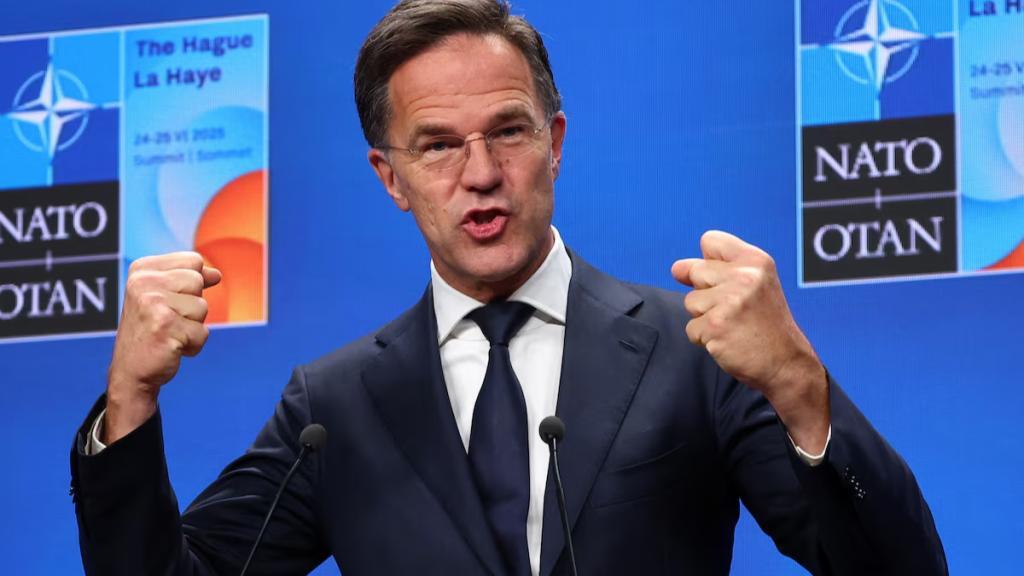
India, China could be hit by sanctions if they continue to do business with Russia: NATO
In a stern warning, NATO Secretary General Mark Rutte cautioned that countries like Brazil, China, and India could face severe economic consequences if they continue to engage in business with Russia. This statement comes on the heels of US President Donald Trump’s threat to impose 100% tariffs on the buyers of Russian exports unless a peace deal is reached within the next 50 days.
Rutte’s warning was made during a press conference in Brussels, where he emphasized the need for international cooperation to address the ongoing crisis in Ukraine. The NATO Secretary General expressed his concern that countries which continue to trade with Russia could be targeted by secondary sanctions, which would have a significant impact on their economies.
The warning is seen as a clear message to countries like India, China, and Brazil, which have maintained close economic ties with Russia despite the international community’s condemnation of its actions in Ukraine. India, in particular, has faced criticism for its reluctance to condemn Russia’s actions and has continued to engage in military and economic cooperation with the country.
India’s close ties with Russia have been a subject of concern for the United States, which has been urging New Delhi to take a stronger stance against Moscow. The US has also been working to strengthen its own ties with India, and has been pushing for increased cooperation in areas such as defense and trade.
China, too, has been a major buyer of Russian oil and gas, and has been accused of using its economic muscle to undermine international efforts to isolate Russia. Beijing has been reluctant to condemn Russia’s actions in Ukraine, and has instead called for a negotiated solution to the crisis.
Brazil, which has traditionally had close ties with Russia, has also been a major importer of Russian oil and gas. The country has been working to diversify its energy supplies, but has yet to make a significant shift away from Russian energy imports.
The threat of secondary sanctions is a significant one, as it could have far-reaching consequences for countries which continue to trade with Russia. Secondary sanctions are designed to target companies and individuals who do business with Russia, and can include measures such as the freezing of assets, restrictions on trade, and even criminal prosecution.
In his press conference, Rutte emphasized the need for international cooperation to address the crisis in Ukraine. He warned that the situation was becoming increasingly precarious, and that the international community needed to come together to find a solution.
“We are facing a very serious situation in Ukraine, and we need to work together to find a solution,” Rutte said. “The threat of sanctions is real, and we need to be prepared to take action if necessary.”
The warning from NATO comes as the international community is increasingly divided over how to respond to Russia’s actions in Ukraine. The US and its allies have imposed severe sanctions on Russia, but Moscow has shown little sign of backing down.
In response to the crisis, the US has imposed a range of sanctions on Russian individuals and companies, including the country’s largest bank, Sberbank. The US has also imposed sanctions on Russia’s energy sector, which has had a significant impact on the country’s economy.
Other countries, including the European Union and Canada, have also imposed sanctions on Russia, but the response has been less severe than that of the US. China and India, however, have so far refused to impose sanctions on Russia, and have instead called for a negotiated solution to the crisis.
The situation is becoming increasingly complex, with different countries taking different approaches to the crisis. The US and its allies are pushing for a tough line against Russia, while China and India are advocating for a more nuanced approach.
As the crisis continues to unfold, it remains to be seen how countries like India, China, and Brazil will respond to the threat of secondary sanctions. Will they continue to engage in business with Russia, or will they take a step back and reconsider their relationships with Moscow?
Only time will tell, but one thing is clear: the situation is becoming increasingly precarious, and the international community needs to come together to find a solution.






